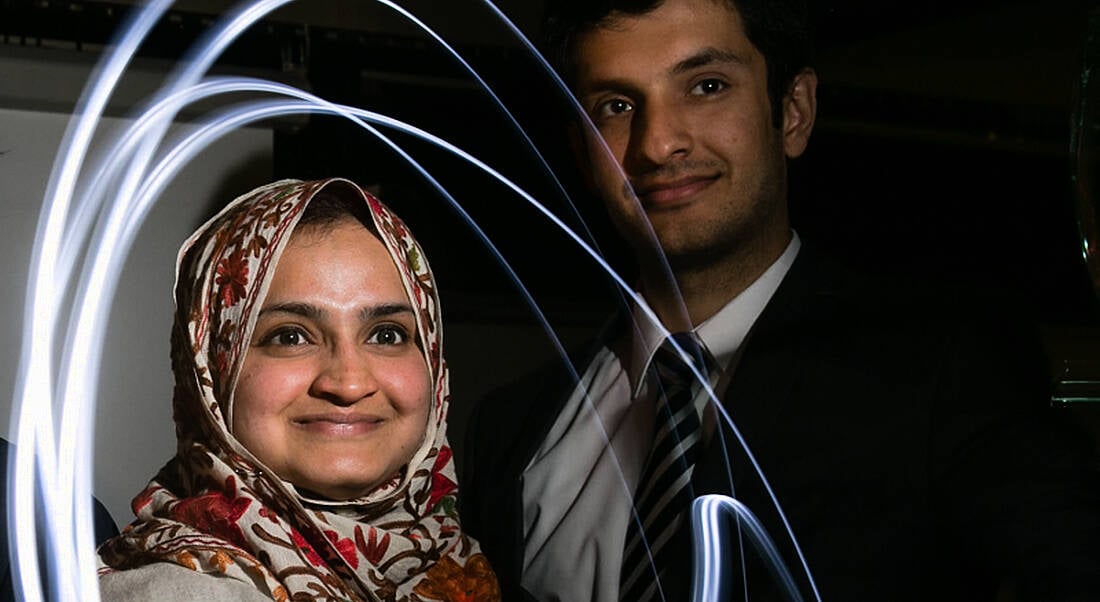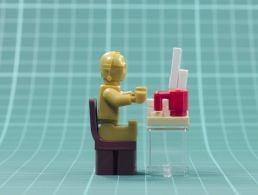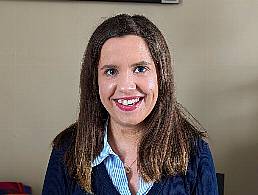After months of (unwarranted) furore over the women-led reboot of Ghostbusters, the movie has finally hit Irish shores.
Flipping the original Ghostbusters dynamic on its head, the four-strong team of scientists and paranormal researchers are now all women, ably played – if early reviews are anything to go by – by Kristen Wiig, Leslie Jones, Kate McKinnon and Melissa McCarthy.
To coincide with the release of the movie, we here at Siliconrepublic.com are showcasing the real-life women scientists and researchers working in Ireland. Here, Joveria Baig, electrical engineering PhD student at Tyndall National Institute, discusses her work, her career path and the research field.
What drew you to this research area?
I was fascinated by the wonders of light from a very young age. Being an inquisitive child, I was drawn to the magical rainbows that displayed the full colours of light.
After finishing my undergraduate degree in electrical engineering from Lahore University of Management Sciences, Pakistan, I finally got a chance to pursue my passion in photonics (the study of light). I completed an Erasmus Mundus double Master’s in Science in optics, science and technology over two years, spanning three institutions: TU Delft (Netherlands), Institut d’Optique Graduate School École Polytechnique (France) and University of Oxford (UK).
Undertaking various courses during my graduate studies, and getting hands-on experience in several optics projects, further motivated me to pursue this field as my career. Subsequently, I started a PhD at the Irish Photonic Integration Centre (IPIC), which is a Science Foundation Ireland-funded research centre based at Tyndall National Institute, University College Cork (UCC).
What’s the best thing about working in this area?
The opportunity to solve real-world problems. From increasing the speed and data capacity of the internet to various medical applications, the chance of contributing to finding answers to these various real-world scenarios is what appeals to me the most.
What’s the most exciting development you’ve witnessed in your sector?
In my opinion, it was the detection of gravitational waves last year by Laser Interferometer Gravitational-Wave Observatory (LIGO), which uses a large-scale photonics-based instrument known as an interferometer.
Gravitational waves detection is one of the key steps in understanding the workings of the universe. This detection will enable scientists to study new features of cosmic objects and, more importantly, understand the fundamental laws of the universe, such as relativity.
This will enable all sorts of discoveries and inventions that we can’t predict yet, but the huge body of knowledge that will now become available to our descendants will be monumental, and it’s very exciting to see photonics technologies at the heart of this project.
What aspect of your job did you struggle to get to grips with?
The biggest challenge for me has been the transition from coursework-based degree programmes to the research environment of a PhD. In a PhD, goals and timelines are usually much longer, and breaking them down in manageable chunks has been challenging.
Unlike course-based studies – where progress is continuously measured in definite standards such as end-of-semester exams – a PhD is like an independent marathon, where I feel it is important to take my time, plan accordingly and make gradual progress.
What’s been the hardest thing you’ve had to face in your career?
Being able to communicate your work in a manner that is understandable and interesting to people of different backgrounds – scientific, commercial, the general public – has been challenging.
Reaching the final of the UCC Doctoral Showcase, a research presentation competition where researchers explain their research to the general public, has helped me improve my presentation skills to general audiences, as well as giving me an insight into the research of my colleagues.
Furthermore, winning the IPIC Photonics Bootcamp, a Photonics start-up competition organised by IPIC, has been key in helping me bridge the gap between my scientific know-how and the entrepreneurial aspects and implications of research.
If you had the power to change anything within the STEM sector, what would that be?
I want to change the male-female ratio to make it more balanced.
At a workplace, it is important to be able to have a support structure to be able to relate to your co-workers and, sometimes, there can be a lack of female mentors in many scientific and technical workplaces.
I strongly believe it is important for women to be part of STEM subjects at a young age. To this end, I have made several efforts by engaging transition-year students and presenting motivational talks about women in STEM careers. I was also chosen to represent Ireland at the IEEE Women in Engineering International Leadership Conference held in San Jose, California, in 2015.
By taking part in these initiatives, and by gaining skills and confidence, I hope that I can be a strong female role model and mentor for future female researchers.
Which of your personality traits makes you best suited to your job and this sector?
I believe desire and motivation are the keys to success, but determination and perseverance are equally as important in the pursuit of achieving your goals – you really have to be committed to be successful. Being ambitious, never taking no for an answer, always wanting to achieve more, and setting my goals high, are some traits which have helped me greatly.
Is there something in your personal life that has helped you in your job?
After getting married at the start of my PhD, I expected managing work and family would be a daunting task, but my supportive husband, Junaid Amin, and my parents’ encouragement have helped me greatly. They all motivate me continuously to pursue and excel in my career.
How do you make connections with others in the STEM community?
I’ve been able to make and maintain connections through several platforms.
I am a two-time recipient of the International Society for Optics and Photonics (SPIE) travel scholarship, which has helped me to participate in various international conferences and to network with people in the STEM community. I’ve also participated in and volunteered for various SFI-organised outreach activities, which are excellent opportunities to network with other researchers.
We also have an excellent structure in IPIC, where we are encouraged to get involved in outreach activities as well as initiatives that bring us closer to the commercial world – the IPIC Bootcamp, for instance, has been an excellent networking platform.
Has mentorship or coaching been important in your career?
Yes, I have been lucky enough to have had very good supervision and mentorship during my career.
In IPIC, my advisors, Brian Corbett and Prof Paul Townsend, are great mentors who continuously guide me through the different stages of my career. Also, the training from initiatives like the IPIC Bootcamp, as well as science communications training through SFI’s Smart Futures programme, UCC’s Doctoral Showcase and IPIC’s own internal outreach programme, have been invaluable for developing softer skills.
I hope that by utilising all these skills as I progress my career, that I can be a mentor to younger researchers and, perhaps especially, female students and schoolgoers who are interested in science and a career in STEM.
What advice would you give to someone thinking about a career in your area?
If you are interested in photonics, definitely go for it. There are so many diverse and exciting areas within the photonics field that you can choose.
For example, here in IPIC, there are two streams of research. One is on the optical communications side (my area of research), which supports the expansion of the internet and energy efficiency in data centres. The other, for those interested in optical processes in biological systems, there is biophotonics, which is an emerging area of scientific research that uses light and other forms of radiant energy to understand the inner workings of cells and tissues in living organisms. The choices are many and there is an ever-growing demand for skills in these areas.
Above all, though, there’s no better feeling than waking up every morning and doing something you enjoy and making a difference to the community at the same time. Learning can sometimes be a tough process, but it is completely worthwhile and can be very exciting. And, with the support of your mentors and colleagues, many doors can be opened, not just in research but in industry also.
You get to work with so many disciplines and people from different backgrounds that each day is different, and that makes for a very rewarding career.
Looking for jobs in tech or science? Check out our Featured Employers section for information on companies hiring right now.




